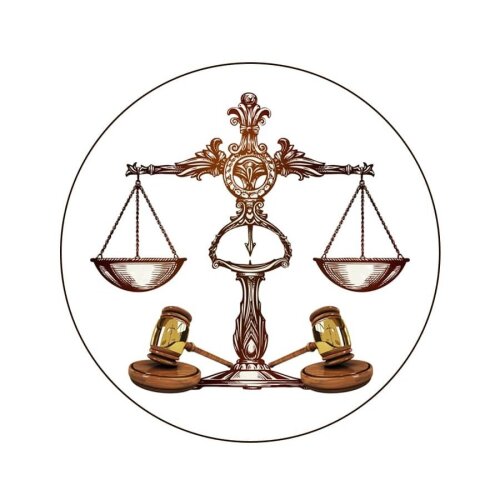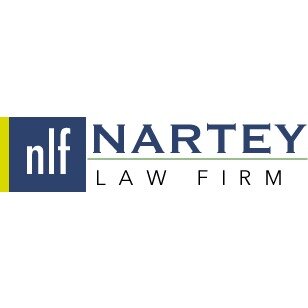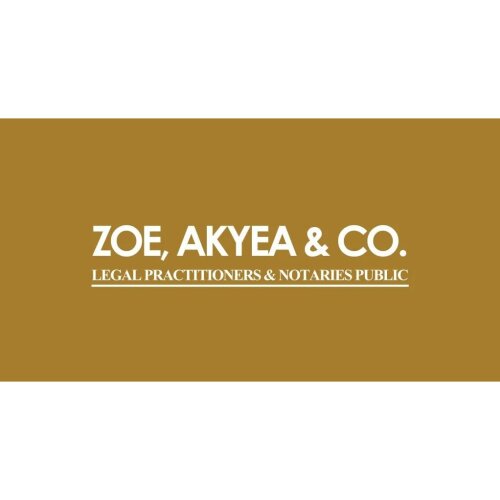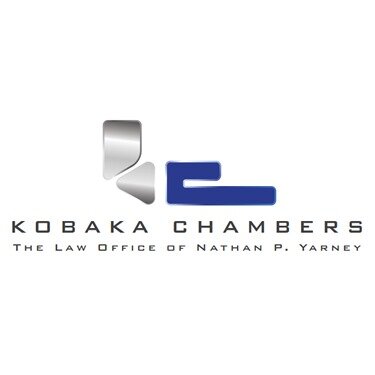Best Will & Testament Lawyers in Ghana
Share your needs with us, get contacted by law firms.
Free. Takes 2 min.
Or refine your search by selecting a city:
List of the best lawyers in Ghana
About Will & Testament Law in Ghana
A Will is a legal document that outlines a person’s wishes regarding the distribution of their assets and the care of any minor children upon their death. In Ghana, the laws governing Wills and Testaments fall under the Wills Act, 1971 (Act 360). This Act provides guidance on the creation, validity, and execution of Wills to ensure that individuals can effectively plan their estates and make sure their wishes are honored after their passing.
Why You May Need a Lawyer
Engaging a lawyer for Will & Testament matters can be crucial in various scenarios. Firstly, a lawyer can help draft a legally binding Will that reduces the likelihood of disputes among beneficiaries. Secondly, if you have a large or complex estate, a lawyer can provide guidance on tax implications and asset distribution. Thirdly, when you are uncertain about the adequacy of a Will previously made, a lawyer can assess its validity. Lastly, in cases of contested Wills or probate disputes, legal representation becomes essential to protect your interests.
Local Laws Overview
In Ghana, a Will must be in writing and signed by the testator (the person making the Will) in the presence of at least two witnesses, who also sign the document. The testator must be of sound mind and at least 18 years old when crafting their Will. The law allows for joint Wills, where two individuals, often spouses, make a single Will. The Wills Act also specifies the circumstances under which a Will can be revoked, for example, upon the marriage of the testator, unless it expressly states that it was made in contemplation of that marriage.
Frequently Asked Questions
What is the purpose of a Will in Ghana?
A Will allows individuals to specify how their assets will be distributed after death, appoint executors to oversee this process, and nominate guardians for minor children.
Does a Will need to be registered in Ghana?
While it is not legally required to register a Will in Ghana, registration at the High Court is recommended as it adds an extra layer of authenticity and security.
Can a foreigner make a Will in Ghana?
Yes, foreigners with assets in Ghana can make a Will according to local laws, which will govern the distribution of their Ghanaian assets.
How can a Will be contested in Ghana?
A Will can be contested on several grounds, including undue influence, lack of testamentary capacity, or non-compliance with the formalities required by the Wills Act.
What happens if someone dies without a Will in Ghana?
When a person dies intestate (without a Will), the Intestate Succession Law, 1985 (PNDC Law 111) dictates how the estate will be distributed among surviving relatives.
Can a Will be changed after it has been made in Ghana?
Yes, a Will can be altered through a codicil, which is an addition or amendment to an existing Will. Alternatively, a new Will can be made, which usually nullifies the old one.
What is a Living Will, and is it recognized in Ghana?
A Living Will is a document that expresses wishes about medical treatment should the person become incapacitated. While not well-established, it's advisable to discuss such matters with a legal professional in Ghana to ensure compliance with any applicable local rules.
What is an Executor, and who can be one in Ghana?
An Executor is an individual appointed in a Will to manage the deceased's estate. Almost anyone can serve as an executor, including family members, friends, a legal professional, or a financial institution.
Do Wills in Ghana need to be notarized?
In Ghana, a Will does not need to be notarized, but it must be properly witnessed to be valid.
Can a Will cover digital assets in Ghana?
Yes, Wills in Ghana can include directions for digital assets, though specific instructions on access and distribution may require additional guidance.
Additional Resources
Individuals seeking further assistance may find the following resources valuable:
- The Ghana Bar Association can provide referrals to qualified estate planning lawyers.
- The Judicial Service of Ghana offers services related to probate and administration of estates.
- Local law libraries and university faculties of law often have materials regarding Wills and estates.
Next Steps
If you need legal assistance in creating or managing a Will, consider contacting a lawyer specialized in estate planning. Collect all relevant documents for your consultation, such as property deeds, asset inventories, and existing Wills or codicils. Having these ready can save time and provide a clearer picture for your legal advisor, ensuring you get comprehensive and tailored advice.
Lawzana helps you find the best lawyers and law firms in Ghana through a curated and pre-screened list of qualified legal professionals. Our platform offers rankings and detailed profiles of attorneys and law firms, allowing you to compare based on practice areas, including Will & Testament, experience, and client feedback.
Each profile includes a description of the firm's areas of practice, client reviews, team members and partners, year of establishment, spoken languages, office locations, contact information, social media presence, and any published articles or resources. Most firms on our platform speak English and are experienced in both local and international legal matters.
Get a quote from top-rated law firms in Ghana — quickly, securely, and without unnecessary hassle.
Disclaimer:
The information provided on this page is for general informational purposes only and does not constitute legal advice. While we strive to ensure the accuracy and relevance of the content, legal information may change over time, and interpretations of the law can vary. You should always consult with a qualified legal professional for advice specific to your situation.
We disclaim all liability for actions taken or not taken based on the content of this page. If you believe any information is incorrect or outdated, please contact us, and we will review and update it where appropriate.
Browse will & testament law firms by city in Ghana
Refine your search by selecting a city.














